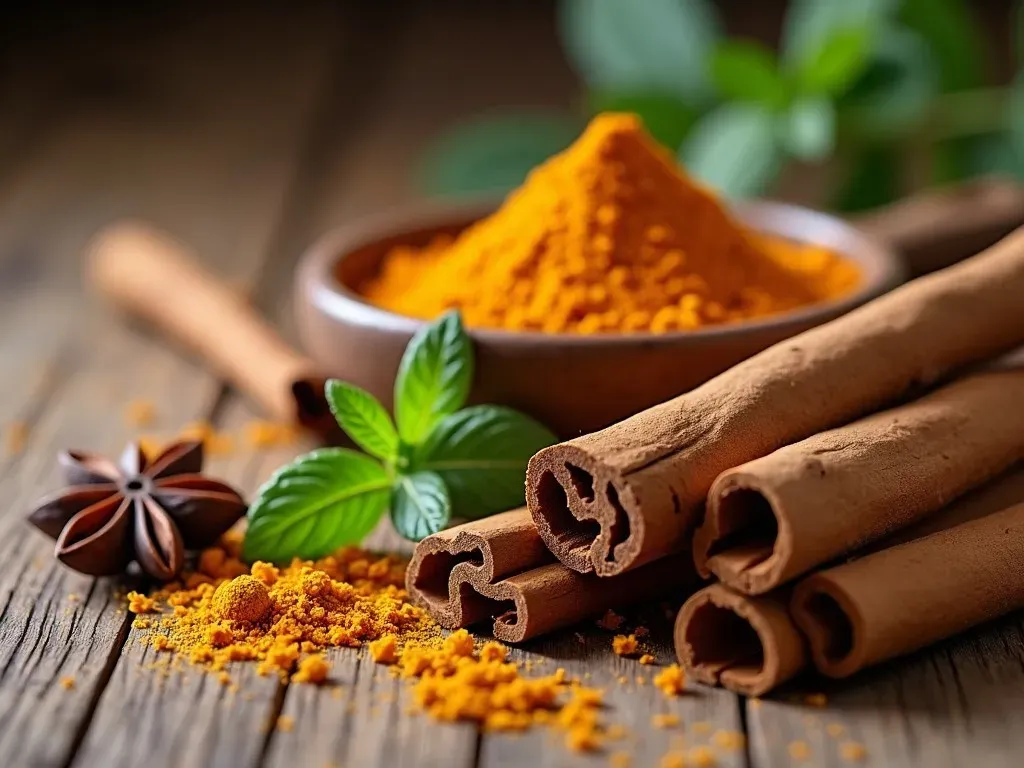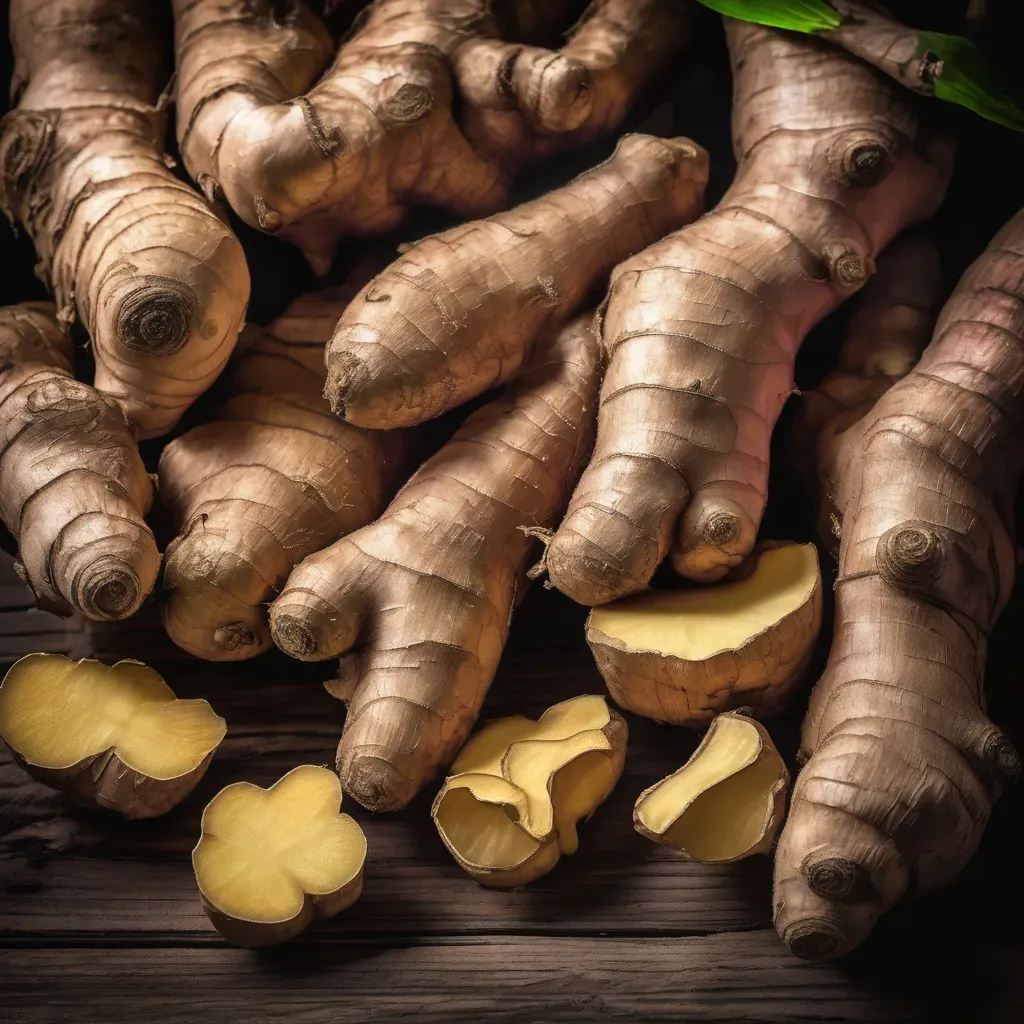Spices That Help Lower Blood Sugar: Managing blood sugar levels is crucial for maintaining overall health, especially for individuals with diabetes or prediabetes. Certain spices are not only flavorful additions to your meals but also possess unique properties that can aid in lowering blood sugar levels. In this article, we will explore the top spices that can help regulate blood sugar and provide a helpful guide on how to incorporate them into your diet.
Why Focus on Spices for Blood Sugar Control?
The search for natural remedies to manage blood sugar is gaining popularity among health-conscious individuals. Spices can be an integral part of this strategy due to their rich bioactive compounds, antioxidants, and anti-inflammatory properties. Regular use of specific spices can provide a tasteful way to assist in blood sugar management along with maintaining a balanced diet.
Key Spices to Incorporate into Your Diet
Here are seven spices that have shown promise in studies focused on their ability to lower blood sugar.
| Spice | Active Compounds | Benefits |
|---|---|---|
| Cinnamon | Coumarin, Polyphenols | Improves insulin sensitivity |
| Ginger | Gingerol, Shogaol | Reduces fasting blood sugar levels |
| Turmeric | Curcumin | Anti-inflammatory, improves glycemic control |
| Fenugreek | 4-Hydroxyisoleucine | Lowers fasting blood sugar |
| Garlic | Allicin | Improves insulin sensitivity |
| Black Pepper | Piperine | Enhances the effectiveness of Other spices and nutrients |
| Clove | Eugenol | Contains antioxidants that manage blood sugar |
1. Cinnamon: The King of Blood Sugar Spices
Cinnamon, one of the most popular spices globally, has been shown to significantly lower blood sugar levels. Studies suggest that the active compounds in cinnamon can improve insulin sensitivity, thereby enhancing glucose metabolism.

Cinnamon has potent properties that aid in lowering blood sugar and improving insulin sensitivity.
2. Ginger: A Zesty Addition
Ginger possesses active compounds known for their antioxidant and anti-inflammatory effects, making it not just a culinary favorite but also a powerful tool against high blood sugar. Research has shown that ginger can lower fasting blood sugar levels and improve HbA1c levels over time.

Ginger not only spices up your dishes but can also help in managing blood sugar levels effectively.
3. Turmeric: The Golden Spice
Packed with curcumin, turmeric is known for its anti-inflammatory properties. Curcumin can potentially improve glycemic control and help manage diabetes complications. Regular consumption of turmeric can be beneficial in keeping blood sugar within a healthy range.

Turmeric is recognized for its health benefits, including managing blood sugar levels effectively.
4. Fenugreek: A Versatile Herb
Fenugreek seeds are rich in soluble fiber, which can help slow down the digestion and absorption of carbohydrates. Several studies have indicated an ability to lower fasting blood sugar levels and improve glucose tolerance.
| Study Reference | Findings |
|---|---|
| "Fenugreek for Diabetes" – Journal of Health Research | Significant reduction in fasting blood glucose levels in participants after 8 weeks of use. |
| "Benefits of Fenugreek in Diabetes Management" – Health Journal | Improved glycemic responses noted in various studies. |
5. Garlic: The Flavorful Blood Sugar Reducer
Garlic is widely known for its heart health benefits but also plays a role in blood sugar management. Allicin, the main active compound in garlic, is known to have a positive effect on reducing fasting blood sugar levels.

Incorporating garlic into your diet may enhance insulin sensitivity and lower blood sugar levels.
6. Black Pepper: The Enhancer
While often overlooked, black pepper contains piperine, an alkaloid that can enhance the absorption of various nutrients. Additionally, it may assist in metabolic processes that help regulate blood sugar levels more effectively when combined with other spices.
7. Clove: An Antioxidant Powerhouse
Cloves offer a wealth of antioxidants, which may help manage blood sugar levels. Eugenol, a powerful compound found in cloves, has been linked in studies to improved insulin sensitivity and lower glucose levels.
How to Incorporate These Spices into Your Diet
- Smoothies: Add a pinch of cinnamon or ginger to your morning smoothie.
- Cooking: Spice up your soups and stews with turmeric and black pepper.
- Tea: Brew ginger or clove tea for a daily health boost.
- Salads: Sprinkle fenugreek seeds over salads for added crunch and flavor.
- Roasted vegetables: Toss garlic and turmeric with roasted veggies for a flavorful side dish.
FAQs
Can spices alone replace diabetes medication?
While spices can have beneficial effects on blood sugar levels, they should not replace prescribed medications. Always consult your healthcare provider for personalized advice.
How much of these spices should I consume daily?
The amount can vary, but generally, 1 teaspoon of powdered spices like cinnamon or turmeric can be a good start. Adjust according to taste and dietary needs.
Are there any side effects of using these spices?
In moderation, most spices are safe; however, excessive consumption should be avoided, especially for people on blood-thinning medication or with specific allergies.
Where can I find more information on spices and health?
For further reading, visit EatingWell for articles regarding the health benefits of spices.
By integrating these spices into your diet, you may create a flavorful, health-conscious approach to managing blood sugar effectively.

